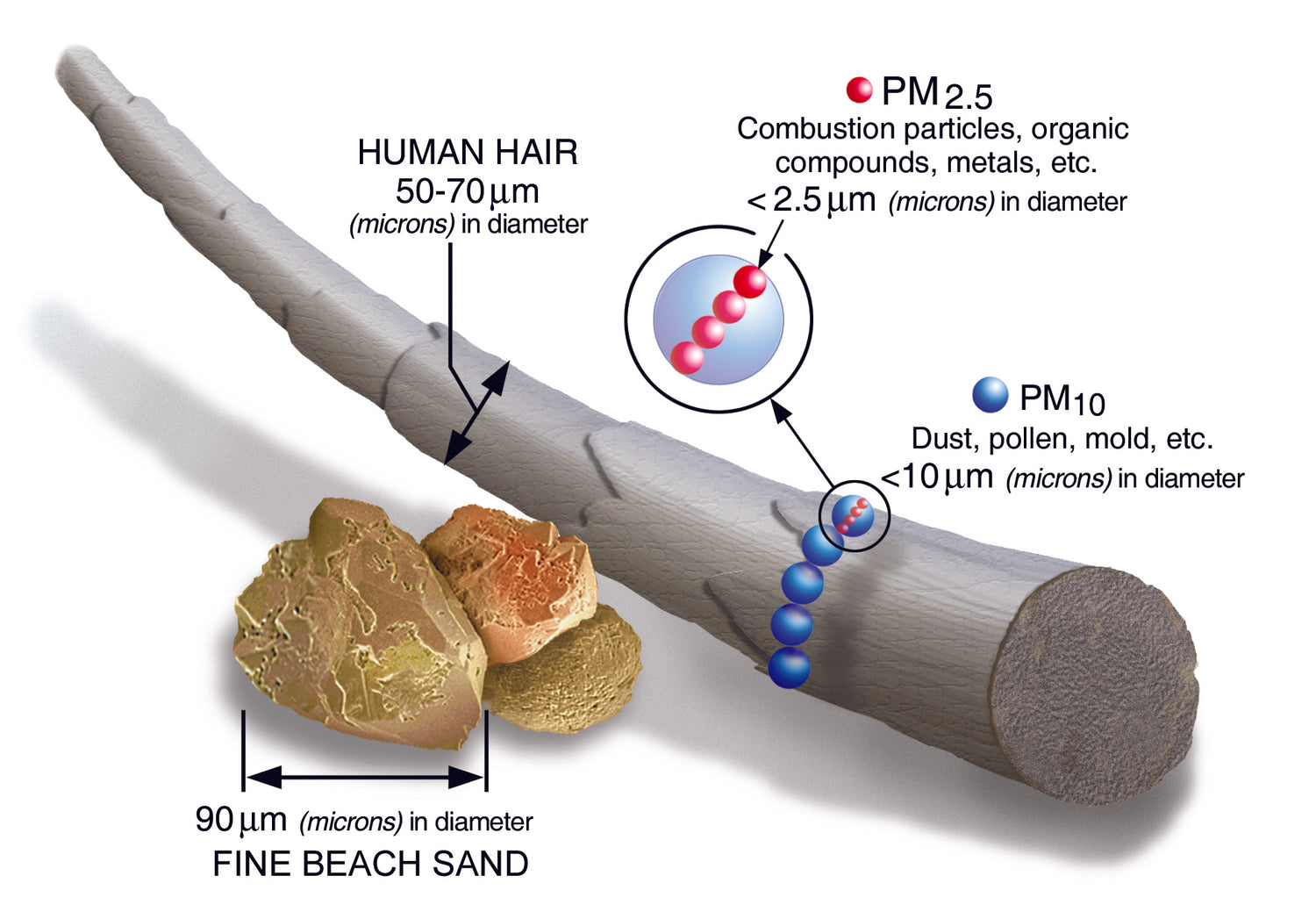Products That Improve Indoor Air Quality
Importance Of Air Purifiers
Air purifiers are essential for maintaining clean and healthy indoor air quality. They work by removing harmful pollutants such as dust, allergens, smoke, and chemicals from the air. Poor indoor air quality can lead to various health problems such as respiratory issues, allergies, and even asthma. Air purifiers can help alleviate these symptoms and create a more comfortable and safe living environment. They are especially beneficial for those living in urban areas with high levels of air pollution, or for individuals with respiratory problems. Additionally, air purifiers can help eliminate unpleasant odors, making the air fresher and more pleasant to breathe. Overall, air purifiers are an important investment for anyone looking to improve their indoor air quality and maintain a healthy living space.

Small Particles, big consequences
Small particles, often referred to as particulate matter (PM), can have adverse effects on health due to their ability to be inhaled deep into the respiratory system. The harmful health effects are primarily associated with fine particulate matter, known as PM2.5 (particles with a diameter of 2.5 micrometers or smaller) and PM10 (particles with a diameter of 10 micrometers or smaller). Here are some reasons why small particles are considered detrimental to health:
Small Particles are Dangerous
- Respiratory Issues: Inhaling fine particles can irritate the respiratory system, causing or exacerbating conditions such as asthma, bronchitis, and other respiratory diseases. The particles can penetrate deep into the lungs, reaching the alveoli, where oxygen is exchanged with the bloodstream.
- Cardiovascular Effects: Particulate matter has been linked to cardiovascular problems. Fine particles can enter the bloodstream directly through the lungs, potentially leading to inflammation, blood vessel constriction, and an increased risk of heart attacks and other cardiovascular diseases.
- Systemic Inflammation: Exposure to small particles can trigger a systemic inflammatory response in the body. Chronic inflammation is associated with various health issues, including cardiovascular diseases, diabetes, and other systemic conditions.
- Reduced Lung Function: Long-term exposure to particulate matter has been linked to a decline in lung function. This can be particularly problematic for individuals with pre-existing respiratory conditions, such as chronic obstructive pulmonary disease (COPD).
- Increased Susceptibility to Infections: Exposure to air pollution, including small particles, can weaken the immune system, making individuals more susceptible to respiratory infections, including pneumonia and other respiratory illnesses.
- Developmental and Reproductive Effects: There is evidence suggesting that exposure to particulate matter, especially during pregnancy, may have adverse effects on fetal development. It has been associated with low birth weight, preterm birth, and developmental issues in children.
- Cancer Risk: Long-term exposure to certain types of particulate matter has been classified as a Group 1 human carcinogen by the International Agency for Research on Cancer (IARC). This means there is sufficient evidence to suggest a link between exposure and an increased risk of cancer.
It's important to note that vulnerable populations, such as children, the elderly, and individuals with pre-existing health conditions, are more susceptible to the health effects of small particles. Reducing exposure to air pollution and particulate matter is crucial for promoting overall respiratory and cardiovascular health.




